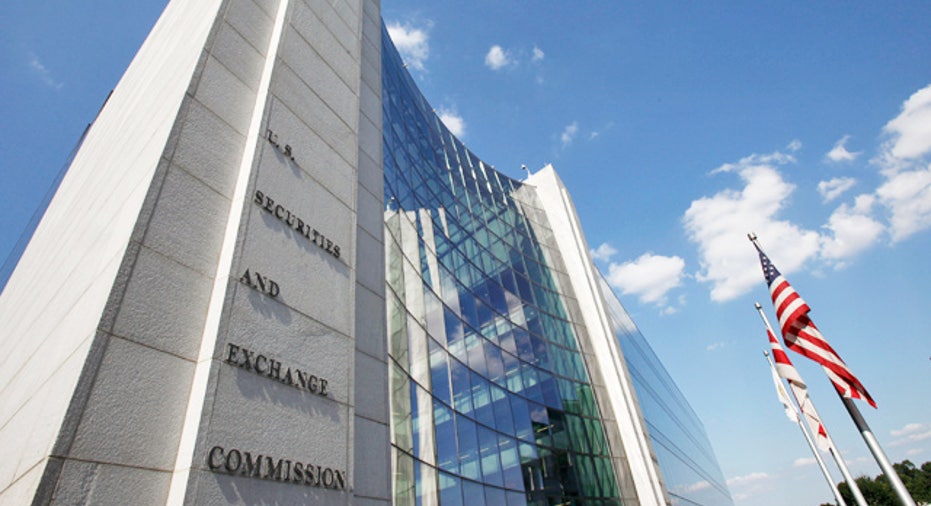SEC Ends Staple for Some Money Funds

The Securities and Exchange Commission on Wednesday approved reforms to money market funds aimed at preventing another run on the industry by panicked investors similar to the one at the height of the 2008 financial crisis.
In a narrow 3-2 vote, the commissioners passed a measure that will require money market funds used by large institutional investors to float their share price rather than maintaining a stable $1 per share net asset value (NAV).
“Today’s reforms will fundamentally change the way that most money market funds operate. They will reduce the risk of runs in money market funds and provide important new tools that will help further protect investors and the financial system in a crisis,” SEC Chair Mary Jo White said in prepared remarks ahead of the SEC’s vote. “Together, this strong reform package will make our financial system more resilient and enhance the transparency and fairness of these products for America’s investors.”
In September 2008, the Reserve Primary Fund, a pioneer in the industry, but heavily invested at the time in bankrupted investment bank Lehman Brothers, “broke the buck” after its share price fell below $1. News that Reserve Primary fund shares had fallen below $1 prompted a panic throughout the $2.6 trillion sector that required the Federal Reserve to step in and backstop the industry.
Money market funds, which are a variation of a mutual fund, pay dividends based on prevailing short-term interest rates and are redeemable on demand. Unlike other investment funds, money market funds seek to maintain a stable NAV, typically $1. Due to the combination of principal stability, liquidity and payment of short-term yields has made money market funds popular cash management vehicles for both retail and institutional investors.
The requirement approved Wednesday that initiate a floating share price will apply to institutional prime money market funds, including institutional municipal money market funds, according to the SEC, and will result in the daily share prices of the money market funds fluctuating along with changes in the market-based value of the funds’ investments.
The approval of the final rule will not require retail money market funds used mostly by individual investors or government funds to initiate a floating NAV, because they are considered less likely than institutional investors to panic and run on a fund in the event of a sudden market downturn.
The SEC said the reforms will also provide new tools to money market fund boards of directors to directly address a run on a fund. The new tools – called fees and gates – will give fund boards the ability to impose liquidity fees or to suspend redemptions temporarily, also known as “gate,” if a fund’s level of weekly liquid assets falls below a certain threshold.
The reforms will cut a wide swath across the investment landscape, impacting such huge institutional investors as Vanguard, Fidelity and Blackrock, as well as municipalities and companies that also use money market funds as investment tools.
Critics of the reform say the new rules could bring complicated and costly tax consequences for companies that rely on money market funds because of their stability and liquidity.
The SEC, in response to that criticism, said the Treasury Department and the Internal Revenue Service, upon approval of the reforms, will release two types of tax guidance that will simplify the process for tracking gains and losses under the new floating share system.
Money market funds that cater to large institutional investors had lobbied against the requirement for floating share prices, saying it would prove a deterrent to large investors.
Verett Mims, the assistant treasurer at Boeing (NYSE:BA), said the aircraft maker would probably have to pull its money from money market funds because the reforms would make the investment vehicles too costly and complex. Mims was part of a conference call organized Tuesday by the U.S. Chamber of Commerce in opposition to the reforms.
Supporters of reform, meanwhile, say the proposals aren’t strong enough.
Better Markets, a Washington, D.C.-based non-profit group that advocates for financial market reforms, said on its website: “These measures are not only inadequate, but may well make things much worse by incentivizing institutional investors in MMFs to run faster and earlier to avoid the risk of fees and gates. This would not only be bad for the increased systemic instability it would create, but it would also greatly disadvantage retail investors who would be left in the funds subject to the fees and gates.”



















